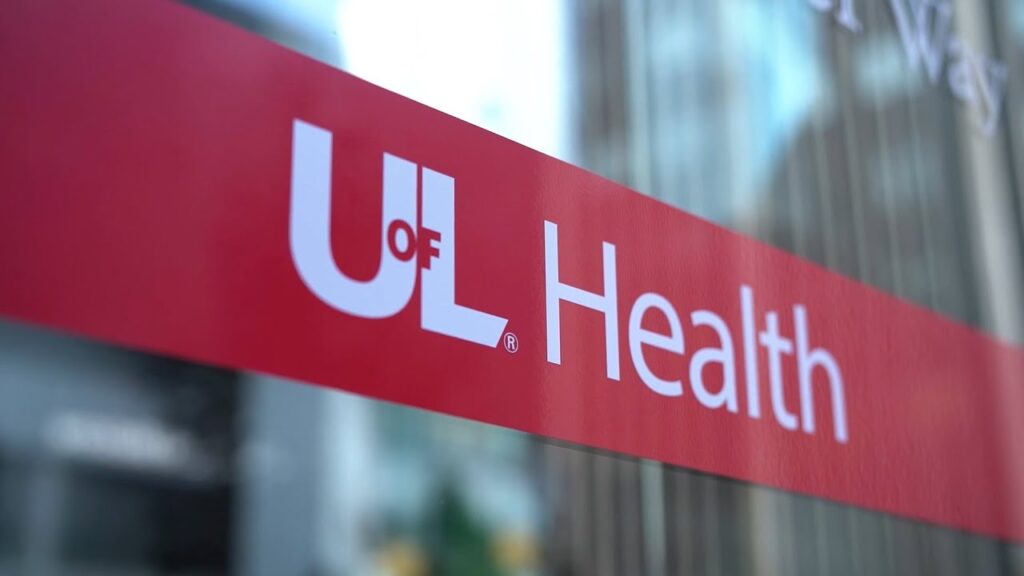The role of a Charge Entry Specialist at UofL Health is pivotal in ensuring that medical facilities operate efficiently, especially when it comes to financial management. Charge entry specialists are responsible for accurately entering and processing patient charges in the billing system, ensuring that healthcare providers are reimbursed for their services in a timely and accurate manner. As healthcare systems become more complex, the role of these specialists has gained significant importance.
This article delves into the responsibilities, skills required, and career prospects for UofL Health Charge Entry Specialists, while offering insights into how they fit into the broader healthcare ecosystem.
Understanding the Role of a UofL Health Charge Entry Specialist:
A Charge Entry Specialist primarily manages the data entry of billing codes related to medical services. At UofL Health, these specialists are part of the healthcare administrative team, ensuring that every treatment and procedure performed is logged and billed appropriately.
This is not just a matter of entering data-it’s a task that demands accuracy, speed, and a deep understanding of medical billing practices.
Medical billing codes, including CPT (Current Procedural Terminology), ICD (International Classification of Diseases), and HCPCS (Healthcare Common Procedure Coding System), are at the core of their work.
Each code represents a specific service, treatment, or medical product, and any misstep can lead to either revenue loss for the healthcare provider or financial burden for patients. Charge entry specialists ensure that this doesn’t happen by meticulously validating the data.
Key Responsibilities of a Charge Entry Specialist at UofL Health:

The work of a Charge Entry Specialist is diverse and entails multiple responsibilities, including:
1. Data Entry and Validation:
Charge entry specialists are responsible for entering detailed information into the healthcare provider’s billing system. This includes the medical services provided, relevant billing codes, and any additional necessary details. They must ensure the accuracy of this data to avoid billing errors.
2. Cross-Referencing Billing Codes:
Each medical service is associated with a unique code. Specialists must verify that the codes match the treatments or services rendered, ensuring proper billing practices.
3. Insurance Claims Processing:
After the entry of charge data, specialists often prepare it for insurance claim submission. They work closely with the billing department to make sure claims are submitted on time and without errors.
4. Patient Billing Support:
Charge entry specialists often liaise with other departments and assist in resolving patient billing inquiries. This includes working with the billing team to address discrepancies or mistakes that may arise during the charge entry process.
5. Compliance and Confidentiality:
Given the sensitive nature of medical records and financial data, these specialists must adhere to stringent privacy regulations such as HIPAA (Health Insurance Portability and Accountability Act). Any breach in patient data can lead to serious legal and financial ramifications.
Skills Required to Become a Charge Entry Specialist:
While the job may seem straightforward, there are specific skills and qualities necessary to succeed in this role:
- Attention to Detail: Since even minor errors in billing can lead to significant financial discrepancies, charge entry specialists must be detail-oriented. Every entry must be correct, with no room for mistakes.
- Knowledge of Medical Billing Codes: A solid understanding of medical billing and coding systems (CPT, ICD-10, HCPCS) is essential for charge entry specialists. UofL Health typically provides training to ensure employees are up-to-date with the latest coding standards.
- Technological Proficiency: Charge entry specialists use various healthcare billing software, so proficiency with computers and specific billing programs is required.
- Communication Skills: This role often involves collaboration with other departments, such as insurance billing teams, healthcare providers, and patient services. Clear communication is vital to avoid errors or delays in processing.
- Analytical Thinking: Charge entry specialists need to assess and cross-check information, requiring the ability to think critically and solve problems effectively.
- Time Management: Given the high volume of charges that specialists may handle in a single day, efficient time management and organizational skills are critical to keep pace with demand while ensuring accuracy.
Career Path and Growth Opportunities:
The role of a Charge Entry Specialist is often an entry point into the broader field of healthcare administration. Many professionals in this position use it as a stepping stone to advance their careers in medical billing, healthcare management, or even health information technology.
As the healthcare sector continues to grow, the demand for skilled administrative professionals, especially those with expertise in medical billing, is expected to rise.At UofL Health, employees in this role have opportunities to expand their knowledge and move into more specialized areas, such as coding auditor positions or billing supervisor roles. Some may even transition into healthcare management positions with further education and experience.
Importance of Charge Entry Specialists in the Healthcare Ecosystem:
Charge entry specialists play an unsung yet critical role in ensuring the financial health of healthcare organizations like UofL Health. Proper billing is essential for a medical institution’s ability to operate smoothly, from paying staff to acquiring necessary medical equipment.
Mistakes in billing can lead to claim rejections, delayed payments, or even financial losses for both the healthcare provider and the patient. Moreover, as healthcare costs rise, the accuracy of billing has become more scrutinized.
With insurance companies implementing stricter guidelines and healthcare organizations facing tighter margins, the need for precise and efficient billing has never been more critical. Charge entry specialists help maintain this delicate balance by ensuring every service rendered is billed correctly.
Challenges Faced by Charge Entry Specialists:
Despite its importance, the job of a Charge Entry Specialist can come with several challenges:
- Volume of Work: With healthcare providers seeing dozens or even hundreds of patients a day, the sheer volume of charges that need to be entered and processed can be overwhelming.
- Changing Billing Codes: Medical billing codes and regulations change regularly, requiring specialists to stay updated on new codes and billing practices. This can sometimes lead to confusion and errors, especially if the training is not up-to-date.
- Insurance Rejections and Denials: One of the most frustrating aspects of the job can be dealing with claim rejections from insurance companies. This often requires charge entry specialists to review and correct the charges before resubmitting claims, adding to their workload.
- Tight Deadlines: The healthcare billing process operates on strict deadlines. Late or incorrect billing can lead to delays in payment or claim rejections, which can have significant financial consequences for the healthcare provider.
How UofL Health Supports Charge Entry Specialists?
UofL Health understands the critical nature of the Charge Entry Specialist role and provides robust support to its employees. The organization offers training programs to ensure specialists are well-versed in the latest medical billing codes and technologies. UofL Health also fosters a supportive work environment by encouraging collaboration between departments, which helps resolve issues related to billing, insurance, and patient services more efficiently.

Additionally, UofL Health prioritizes work-life balance and provides competitive salaries and benefits to attract and retain top talent in the healthcare administration field. Specialists at UofL Health have access to continuous learning opportunities and career development programs, enabling them to grow within the organization.
Future Outlook for Charge Entry Specialists:
The healthcare industry is rapidly evolving, and with the ongoing shift towards digitization, the role of Charge Entry Specialists is expected to evolve as well. Healthcare organizations are increasingly adopting advanced billing systems, artificial intelligence (AI), and machine learning tools to streamline the billing process. However, human oversight remains essential to ensure that these technologies function correctly and that billing errors are minimized.
FAQ’s:
1. What is a Charge Entry Specialist?
A Charge Entry Specialist is responsible for entering, verifying, and managing billing data for healthcare services. They ensure that medical procedures are accurately billed to insurance companies or patients.
2. What qualifications are needed to become a Charge Entry Specialist?
Typically, a high school diploma or equivalent is required, along with knowledge of medical billing codes. Certification in medical billing and coding is often preferred.
3. Is certification necessary for a Charge Entry Specialist?
While certification is not always required, obtaining certification from organizations like AAPC or AHIMA can enhance job prospects and career advancement opportunities.
4. What skills are important for a Charge Entry Specialist?
Key skills include attention to detail, knowledge of medical billing codes, proficiency with billing software, and strong communication abilities.
5. How does technology impact the work of Charge Entry Specialists?
Technology, including billing software and EHR systems, helps streamline the charge entry process, reduce errors, and improve efficiency.
6. What is the career outlook for Charge Entry Specialists?
The demand for Charge Entry Specialists is expected to grow, with opportunities for advancement into supervisory roles or further specialization in medical coding or healthcare compliance.
7. What software do Charge Entry Specialists use?
Charge Entry Specialists often use software such as Epic, Cerner, and Meditech to input and manage billing data.
Conclusion:
The role of a UofL Health Charge Entry Specialist is crucial in the broader framework of healthcare administration. From ensuring accurate billing and claims processing to contributing to the financial stability of healthcare institutions, these professionals are integral to the healthcare system’s smooth operation. As the demand for healthcare services grows, so too will the importance of efficient and precise charge entry.